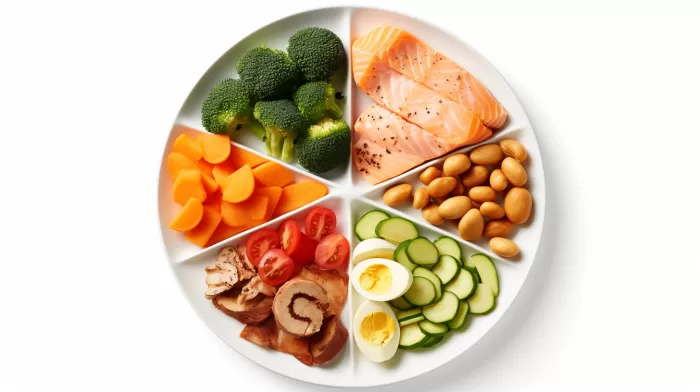When it comes to diets and achieving weight loss, you may feel overwhelmed by the countless studies and articles advocating for various types of diets. Quite often, researchers and nutritionists base their dietary recommendations on individual outcomes, which can significantly vary. To add some clarity to the world of diets, a team of scientists at the Norwegian University of Science and Technology (NUST) decided to examine how our diets affect gene expression.
Study Findings: The Balanced Diet
The research conducted by NUST scientists has presented some compelling insights into maintaining a healthy diet to prevent inflammation and excess body fat. The study findings suggest that the crucial factor to achieving these goals is to consume a balanced diet. According to biologist Berit Johansen from NUST, “a healthy diet shouldn’t be made up of more than one-third carbohydrates – up to 40 percent of calories – in each meal, otherwise we stimulate our genes to initiate the activity that creates inflammation in the body.”
Metabolic Inflammation: The Hidden Culprit
The researchers at NUST also focused on a type of inflammation that is not commonly discussed: metabolic inflammation. Unlike regular inflammation, which occurs when the body is fighting an illness, metabolic inflammation is harder to detect. Some signs of metabolic inflammation include red skin, a warm body temperature, bloating, and mental fogginess.
So how does one combat the issue of metabolic inflammation? The findings from the NUST study suggest that adhering to a balanced diet, consisting of equal parts protein, carbohydrates, and fats, is the key to mitigating this form of inflammation. Now, let’s take a closer look at the constituents of a balanced diet.
Protein: The Building Blocks of a Balanced Diet
Protein, often referred to as the “building blocks” of the body, is essential for cell repair and growth. The U.S. Dietary Guidelines recommend that adults consume 10-35% of their calories from protein sources such as lean meats, poultry, seafood, beans, peas, eggs, and nuts. Importantly, consuming moderate amounts of protein can promote satiety, which may help curb overeating and lead to more effective weight management.
Carbohydrates: The Body’s Primary Fuel Source
As the primary fuel source for the body, carbohydrates should make up a significant portion of your diet. However, the type of carbohydrates matters greatly. It is important to choose complex carbs such as whole grains, fruits, vegetables, and legumes, rather than simple carbs like sugar and refined grains. Complex carbs are digested more slowly, helping to maintain stable blood sugar levels and prevent energy crashes. The U.S. Dietary Guidelines recommend that adults consume 45-65% of their calories from carbohydrates.
Fats: The Good, the Bad, and the Essential
Fats often get a bad rap, but they play a vital role in a healthy diet. Some fats are essential to help the body absorb essential vitamins, protect organs, and maintain cell membranes. However, not all fats are created equal. Unsaturated fats, such as polyunsaturated and monounsaturated fats – found in nuts, seeds, fish, and vegetable oils – are considered the healthiest choice. The U.S. Dietary Guidelines suggest that adults consume 20-35% of their calories from fat, with saturated fats making up less than 10% of total calories.
Practical Tips for a Balanced Diet
Now that a balanced diet has been broken down into its main components, how can you implement these changes in your daily life? Here are some practical, easy-to-follow tips to help you achieve a balanced diet:
- Start by making small tweaks to your diet instead of attempting a complete overhaul. Gradually replace unhealthy choices with healthier alternatives, and track your progress.
- Eat a variety of foods, especially fruits and vegetables. This not only adds color and texture to your meals but also ensures you are receiving a wide range of essential nutrients.
-
Practice portion control. Overeating, even healthy foods, can lead to weight gain and metabolic imbalances. Keep portion sizes in check and listen to your body’s hunger cues.
-
Stay hydrated. Drinking plenty of water can help maintain energy levels and prevent overeating by promoting satiety.
-
Plan your meals ahead of time, when possible. Meal planning can help you make healthier choices and avoid careless eating.
In conclusion, focusing on a balanced diet that consists of equal parts protein, carbohydrates, and fats can help promote weight loss, reduce inflammation, and improve your overall health. By combining the NUST study findings with research-based dietary guidelines and incorporating practical tips for maintaining a balanced diet, you can improve your health and feel better than ever.



